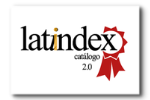The foundations of the metaphysics of the doctrine of law in Kant
DOI:
https://doi.org/10.5281/zenodo.4741021Keywords:
Moral. Virtue. Law. Metaphysics. Freedom.Abstract
The theme of this article is: The foundation of the metaphysics of the doctrine of law in Kant. The following problem was investigated: Is it considered that the philosopher's role has fallen into disuse, as a will can be free, while at the same time being subject to the ethical and moral conditions of the norm? The following hypothesis was considered: This freedom defended by the philosopher may depend on the possibility for its existence to be possible and may be free if it depends on the determination of conformity with the laws. The general objective of this work is to analyze how the philosopher in the face of contradictions will develop rational solutions for submission to the ethical and moral conditions of the norm. The Specific Objectives of this work are: to analyze the supreme principle of morality; moral action and the concepts of reason and highlight the metaphysical character of both morals and law, addressed by Kantian works. This work is important in an individual and collective perspective, because in the introduction of the study of Law Philosophy appears as a foundation and over the years within the legal and academic life, the norm goes more and more against custom, entering the individual compass. This is a qualitative theoretical research lasting six months. Upon concluding the study on the issues that underlie the metaphysics of customs, Kant no longer mentions anthropological dualism, man as nature and reason, in sustaining the idea that part of the rational, intelligible world, the human will will be free and overlap about all the influences of the sensitive nature. For it can strengthen the metaphysical character of Kantian morals.
References
Almeida, G. A. de. (2006). Sobre o princípio e a lei universal do Direito em Kant. Kriterion: Revista de Filosofia, 47(114), 209–222. https://doi.org/10.1590/S0100-512X2006000200002
Andrade, A. C. (1998). A relação entre moral e direito em Kant. Cadernos de Filosofia Alemã: Crítica e Modernidade, 0(4), 65. https://doi.org/10.11606/issn.2318-9800.v0i4p65-79
Almeida, G.A. (1997). Liberdade e moralidade segundo Kant. Ed. Analytica, 2(1).
Casey, E. S. (1997). The fate of place: A philosophical history. University of california press.
Caygill, H. (2000). Dicionário Kant. Tradução Álvaro Cabral. Rio de Janeiro: Jorge Zahar.
Cenci, A.V. (2000). Temas sobre Kant, metafísica, estética e filosofia política. Coleção Filosofia. Porto Alegre. EDIPUCRS.
Chaui, M. (2000). Convite à Filosofia. São Paulo, Ática.
Gonçalves, J.R. (2019). Manual de Artigo de Revisão de Literatura. Brasília: Processus.
Gonçalves, J.R. (2019). Manual de Projeto de Pesquisa. Brasília: Processus.
Heidegger, M. (1996). Kant y El Problema de la Metafísica. Traducción de Gred Ibscher Roth. México, Fondo de Cultura Económica. Segunda Reimpresión.
Japiassú H., & Marcondes, D. (2001). Dicionário Básico de Filosofia. 3ª Ed revisada e ampliada. Rio de Janeiro: Jorge Zahar.
Kant, I. (2003). A metafísica dos costumes. Tradução Edson Bini. São Paulo: EDIPRO.
Kant, I. (2002). Crítica da razão pura. Tradução e notas de Valério Rohden. São Paulo: Marfins Fontes.
Kant, I. (2013). Critica da Razão Prática. Tradução Afonso Bertagnoli. Rio de Janeiro: Saraiva.
Kant, I. (2013). Doutrina do direito. Tradução Edson Bini, 4ª Ed. São Paulo: Icone.
Kant, I. (1980). Fundamentação da metafísica dos costumes. In: Textos selecionados. Seleção de textos de Marilena de Souza Chauí; tradução de Tânia Maria Bernkopf e Paulo Quintela e Rubens Rodrigues Torres Filho. São Paulo: Abril Cultural.
Kant, I. (1992). Lógica. Tradução do texto original estabelecido por Gottlob Benjamim Jasche de Guido Antônio de Almeida. Rio de Janeiro: Tempo Brasileiro.
Kant, I. (1995). O progresso da Metafísica. Tradução de Artur Mourão. São Paulo, Edições 70.
Kant, I. (2014). Princípios Metafísicos da Doutrina do Direito. Tradução e introdução de Joãosinho Beckenkamp, São Paulo, Martins Fontes.
Kant, I & Rohden, V. (2015). Crítica da Razão Prática, Ed. Martins Fontes, 2ªEd.
Lebrun, G. (2002). Kant e o Fim da Metafísica, Ed. Martins Fontes.
Lyra, R.F. (1986). Desordem e Processo – Estudos sobre Direito em homenagem a Roberto Lyra Filho. Porto Alegre, Sergio Antonio Fabris Editor.
Marcondes, D. (2009). Textos Básicos de Filosofia – Dos Pré-Socráticos a Wittgenstein. 6. Ed. Rio de Janeiro: Jorge Zahar.
Merleau-Ponty, M. (2013). Phenomenology of perception (0 ed). Routledge. https://doi.org/10.4324/9780203720714
Mesquita, J.F. (2014). O conceito de sociedade civil em Kant, Programa de pós-graduação em filosofia (mestrado em filosofia). Faculdade de filosofia e ciências humanas pontifica universidade católica do Rio Grande do Sul, Porto Alegre, RS.
Nahra, C. M. L. (1995). O imperativo categórico e o princípio da coexistência das liberdades. Ed. Princípios, Natal, (3).
Pereira, V.M. (2011). O ponto de vista da liberdade: a critica kantiana e hermenêutica à AUFKLÄRUNG. Semana acadêmica do PPG em filosofia da PUCRS – VIII edição, Porto Alegre, 2011.
Peres, D.T. (1998). Imperativo categórico e doutrina do direito. Caderno de filosofia alemã, 4.
Pavão, A. (2010). Liberdade transcendental e liberdade prática na crítica da razão pura. Síntese: Revista de Filosofia, 29(94), 171. https://doi.org/10.20911/21769389v29n94p171-190/2002
Rohden, V. (1891). Interesse da razão e liberdade. São Paulo: Atíca.
Saunders, C. et al., (2009). Como Estudar Filosofia: Guia Prático para Estudantes, 2009, Ed. Artmed, 1ªEd.
Singer, P. (2005). Ethics and intuitions. The Journal of Ethics, 9(3–4), 331–352. https://doi.org/10.1007/s10892-005-3508-y
Silva, A.F. (2005) O conceito de direito na filosofia de lmmanuel Kant. 103f. Dissertação (Mestrado Acadêmico em Filosofia) - Centro de Humanidades, Universidade Estadual do Ceará, Fortaleza.
Silveira, F. L. da. (2002). A teoria do conhecimento de Kant: O idealismo transcendental. Caderno Brasileiro de Ensino de Física, 28–51. https://periodicos.ufsc.br/index.php/fisica/article/view/10053
Terra, R. (2004). Kant & o direito. Rio de Janeiro: Jorge Zahar.
Trevisan, D. K. (2014). Sentidos de metafísica na filosofia crítica de Kant.
Zapero, D. (2016). La doctrine kantienne du Faktum de la raison et la justification de la loi morale. Archiv für Geschichte der Philosophie, 98(2), 169–192. https://doi.org/10.1515/agph-2016-0008
Downloads
Published
How to Cite
Issue
Section
ARK
License
Copyright (c) 2017 (CC BY 4.0)

This work is licensed under a Creative Commons Attribution 4.0 International License.





















